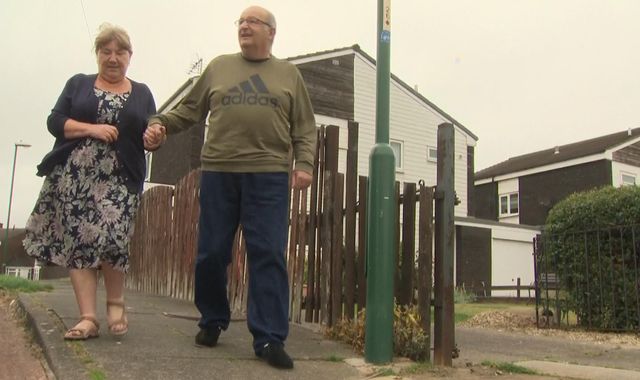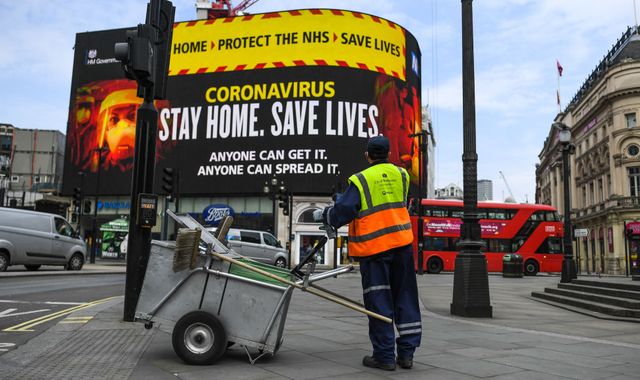Stroke victims being failed as COVID pandemic hits support services, says study
Written by News on 17/09/2020
Tens of thousands of stroke patients could be denied the chance of recovery because of the effects of the COVID-19 pandemic on services, according to the Stroke Association.

The charity has commissioned a study which surveyed over 2,000 patients. It says the Stroke Recoveries at Risk report shows how the government needs to take immediate action to stem a “rising tide” of demand on the NHS.
Juliet Bouverie, chief executive of the Stroke Association said: “Strokes didn’t stop because of the pandemic. Despite the tireless efforts of frontline clinicians who have gone to herculean efforts to maintain services under extremely difficult conditions, some treatments still became unavailable and most stroke aftercare ground to a halt.
“This means more stroke survivors are now living with avoidable, unnecessary disability. Stroke is a brain attack that affects 100,000 people a year – killing thousands and leaving others with complex and severe disability.
“Recovery is tough, but with the right specialist support and a ton of courage and determination, the brain can adapt after stroke.”
Dave Kirton from South Shields was on holiday with his wife Catherine when he contracted COVID-19 and spent three weeks in intensive care in Belgium. Just days after coming out of the ICU he had a stroke, and was taken back into intensive care.
When he was repatriated several days later, the stroke ward at his local hospital had been re-purposed as a COVID ward, and the specialist care and support was not immediately available.
The hospital initially wanted to discharge him as soon as he tested negative for COVID, but thankfully his specialist managed to secure him a bed for two weeks.
During that time he received daily physiotherapy which rapidly improved his condition. Under normal circumstances he would have received that level of care for several more weeks.
As it was he was discharged, and now only gets one 45 minute session per week. His eyesight has been affected but hasn’t had an appointment with an ophthalmologist, and feels his overall progress has been badly affected.
He said: “It’s slowed down. It has. I mean I can get in and out of the car, just. But because I haven’t had my eyes checked I can’t see very well. Everything’s a happy blur to me, you know. So it’s difficult. It’s not easy. I know I could probably get better if I was pushed along a bit, and with a bit of help.”
Catherine added: “I hope it doesn’t, but it could cause long term disability. David could have got back to work I think, but now he could be on benefits until he retires, which is ridiculous. The amount of money you’d spend on one far outweighs the other.”
Sixty-year-old Peter Kemp, from Risca in Wales, had a stroke in 2017 and received six weeks of mental health therapy, but says he was then “dropped” by the system and has been in a deep depression ever since.
“I was struggling because I didn’t even recognise myself, I was angry all the time,” he said.
“All that I was, was gone. I felt so alone and eventually, I was going to commit suicide. It was only by chance I didn’t do it. All my life seemed to have been destroyed by the stroke and I felt completely isolated and like nobody understood.”
The charity says neither current levels nor pre-pandemic levels of support were good enough. Without a change, there is going to be a stroke care crisis that will put massive pressure on the health and care services.
Professor Rustam Al-Shahi Salman, President of the British Association of Stroke Physicians said: “During the pandemic there were significant changes to the way stroke services ran, as we’d all expect.
We were worried about the reduction in the number of people presenting to hospital with mini-stroke and stroke. COVID-19 also affected the treatment and rehabilitation available and the speed with which they could be delivered.
“People who survived strokes that occurred during COVID-19 could benefit if the recommendations of the Stroke Recoveries at Risk report are implemented.
“The lessons that we have learned must inform how stroke services respond if a second surge of COVID-19 occurs.”
(c) Sky News 2020: Stroke victims being failed as COVID pandemic hits support services, says study






